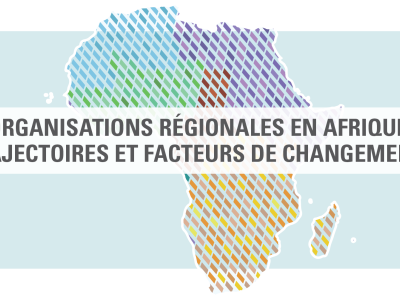
3 priorities for a successful 2015 Financing for Development Conference
How to make it a success?
To serve its purpose, however, it needs to put forward a strong political message that paves the way for successful negotiations of the sustainable development goals (SDGs). Participants - high-level political representatives, as well as all relevant institutional stakeholders, NGOs and businesses - will therefore need to demonstrate willingness and determination to agree on an ambitious Monterrey/Doha follow-up framework.
There I would hope that this takes the form of bold policy actions. Here are the three main priorities that are necessary:
-
The need to move beyond aid. The latest OECD Development Co-operation Report 2014 makes an excellent contribution to that end, calling to use official development assistance (ODA) in smarter ways, while taking the importance of all other sources of finance into account, such as the private and financial sectors. Development finance institutions (DFIs), multilateral and regional development banks, other funds and bonds are key to deliver on post-2015 sustainable development. However, that should not free national governments from meeting their commitments to spend 0.7% of their gross national income (GNI) on development cooperation.
-
The creation of appropriate incentives and regulatory frameworks. Incentives created for the private sector, so that private investment decisions are in line with the aspirations of the post-2015 development agenda, are needed to get other actors on board. An agreement on better risk mitigation instruments for private investments, if addressed well, could make a real difference for both infrastructure development and overall prosperity in terms of job creation and spillover effects on other sectors. Though this requires that sound policies and accountable institutions are in place.
-
The need to move beyond finance. Global rules on taxation and the financial sector are needed to combat financial shocks and address the issue of illicit financial flows through e.g. disclosure requirements or minimum standards for domestic resource mobilisation (DRM).
What about politics?
Implementation of the SDGs will therefore not only depend on finance and renewed financial commitments - which are in many cases not met anyway - but rather on the creation of political incentives to adapt policies to use available (and mobilise new) finance more effectively, as the forthcoming European Report on Development (ERD) 2014/15 will argue.
Ahead of the conference there are a number of important documents on the reading list. The ICESDF report and the OWG on SDGs Outcome Document have been supplemented by last week’s UN Secretary-General’s Synthesis Report on the post-2015 agenda. Ban Ki-moon stresses “the Third International Conference on FfD is critical for achieving concrete outcomes that would finance sustainable development and set the stage for a successful outcome of the Conference of the Parties, COP21, in Paris”.
All these documents and reports however have not yet, come up with a satisfactory proposal on how best to move forward with two issues:
-
The means to implement such an agenda to achieve post-2015 sustainable development
-
Translating an universally applicable one - so applying to all countries - into meaningful, fair and ambitious targets for countries with different starting points, capacities and responsibilities. (This will be further elaborated on in a forthcoming ECDPM discussion paper on universality and differentiation in the post-2015 development agenda).
What to expect?
As a first step and ahead of the official post-2015 negotiations at the 70th UN General Assembly, the FFD conference’s participants in Addis next year should demonstrate their determination of moving forward. I would hope the conference to at least provide some concrete elements for an answer to the first issue - means of implementation. Unfortunately, this depends on the what and the context of where it will be implemented - decided upon later that year. Thus, the risk is that the conference will come up with a rather vague agreement and inadequate results. But I would be more than happy to be proven wrong.
----
This blog is the view of the author and not necessarily that of ECDPM

